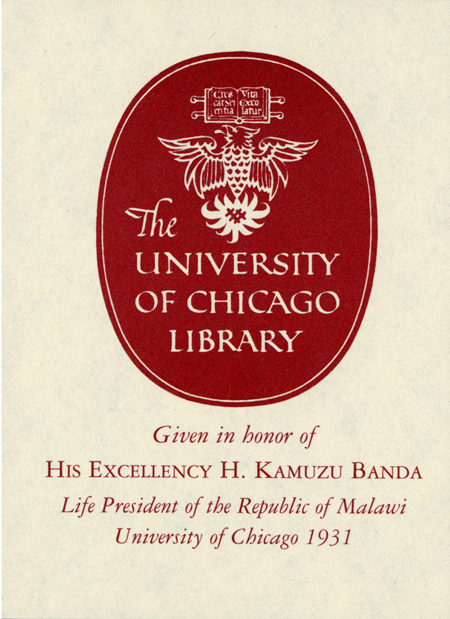The Gacaca courts, post-genocide justice and reconciliation in Rwanda : justice without lawyers /
Saved in:
| Author / Creator: | Clark, Philip, 1979- |
|---|---|
| Imprint: | Cambridge ; New York : Cambridge University Press, 2010. |
| Description: | xii, 388 p. : ill., map ; 24 cm. |
| Language: | English |
| Series: | Cambridge studies in law and society Cambridge studies in law and society. |
| Subject: | |
| Format: | Print Book |
| URL for this record: | http://pi.lib.uchicago.edu/1001/cat/bib/8155695 |
MARC
| LEADER | 00000cam a2200000 a 4500 | ||
|---|---|---|---|
| 001 | 8155695 | ||
| 003 | ICU | ||
| 005 | 20110504145400.0 | ||
| 008 | 100524s2010 enkab b 001 0 eng | ||
| 010 | |a 2010021886 | ||
| 020 | |a 9780521193481 | ||
| 020 | |a 0521193486 | ||
| 035 | |a 8155695 | ||
| 035 | |a 2010021886 | ||
| 035 | |a (OCoLC)632082648 | ||
| 040 | |a DLC |c DLC |d YDX |d UKM |d YDXCP |d BWK |d GUL |d UtOrBLW | ||
| 042 | |a pcc | ||
| 043 | |a f-rw--- | ||
| 050 | 0 | 0 | |a KTD454 |b .C57 2010 |
| 082 | 0 | 0 | |a 364.15/10967571 |2 22 |
| 090 | |a XXKTD454 |b .C57 2010 | ||
| 100 | 1 | |a Clark, Philip, |d 1979- |0 http://id.loc.gov/authorities/names/nr2006015006 |1 http://viaf.org/viaf/17184173 | |
| 245 | 1 | 4 | |a The Gacaca courts, post-genocide justice and reconciliation in Rwanda : |b justice without lawyers / |c Phil Clark. |
| 260 | |a Cambridge ; |a New York : |b Cambridge University Press, |c 2010. | ||
| 300 | |a xii, 388 p. : |b ill., map ; |c 24 cm. | ||
| 336 | |a text |b txt |2 rdacontent |0 http://id.loc.gov/vocabulary/contentTypes/txt | ||
| 337 | |a unmediated |b n |2 rdamedia |0 http://id.loc.gov/vocabulary/mediaTypes/n | ||
| 338 | |a volume |b nc |2 rdacarrier |0 http://id.loc.gov/vocabulary/carriers/nc | ||
| 490 | 1 | |a Cambridge studies in law and society | |
| 504 | |a Includes bibliographical references and index. | ||
| 505 | 8 | |a Machine generated contents note: Introduction; 1. Situating Gacaca: transitional justice themes; 2. Moulding tradition: the history, law and hybridity of Gacaca; 3. Interpreting Gacaca: the rationale for analysing a dynamic socio-legal institution; 4. The Gacaca journey: the rough road to justice and reconciliation; 5. Gacaca's modus operandi: engagement through popular participation; 6. Gacaca's pragmatic objectives; 7. Accuser, liberator or reconciler? - truth through Gacaca; 8. Law, order and restoration: peace and justice through Gacaca; 9. Mending hearts and minds: healing and forgiveness through Gacaca; 10. (Re)fusing social bonds: Gacaca and reconciliation; Conclusion. | |
| 520 | |a "This is a timely empirical study and review of the Gacaca Courts which were established in 2001 in Rwanda as an attempt to prosecute suspects involved in the 1994 genocide. Based on the author's original field work which began in 2003 in Rwanda and which has been updated to the end of 2009, it includes responses from within the Rwandan population. Dr. Clark argues that, despite widespread international scepticism, the Gacaca process has achieved remarkable results in terms of justice and reconciliation, although this has often come at a price, especially the re-traumatisation of many Rwandans who have participated firsthand in hearings. This book will appeal to a wide global readership crossing human rights, transitional justice and African studies for its combination of original empirical data with a socio-legal analysis"-- |c Provided by publisher. | ||
| 520 | |a "Since 2001, the Gacaca community courts have been the centrepiece of Rwanda's justice and reconciliation programme. Nearly every adult Rwandan has participated in the trials, principally by providing eyewitness testimony concerning genocide crimes. Lawyers are banned from any official involvement, an issue that has generated sustained criticism from human rights organisations and international scepticism regarding Gacaca's efficacy. Drawing on more than six years of fieldwork in Rwanda and nearly 500 interviews with participants in trials, this in-depth ethnographic investigation of a complex transitional justice institution explores the ways in which Rwandans interpret Gacaca. Its conclusions provide indispensable insight into post-genocide justice and reconciliation, as well as the population's views on the future of Rwanda itself"-- |c Provided by publisher. | ||
| 650 | 0 | |a Gacaca court system. | |
| 650 | 0 | |a Genocide |z Rwanda. |0 http://id.loc.gov/authorities/subjects/sh2008105129 | |
| 650 | 0 | |a Restorative justice |z Rwanda. | |
| 650 | 7 | |a Gacaca justice system. |2 fast |0 http://id.worldcat.org/fast/fst01747402 | |
| 650 | 7 | |a Genocide. |2 fast |0 http://id.worldcat.org/fast/fst00940208 | |
| 650 | 7 | |a Restorative justice. |2 fast |0 http://id.worldcat.org/fast/fst01096003 | |
| 651 | 7 | |a Rwanda. |2 fast |0 http://id.worldcat.org/fast/fst01212358 | |
| 830 | 0 | |a Cambridge studies in law and society. |0 http://id.loc.gov/authorities/names/n97067802 | |
| 903 | |a HeVa | ||
| 929 | |a cat | ||
| 999 | f | f | |i 932ef14a-dcbf-5594-bccb-61726ad9f14d |s a6894758-ff2b-509f-9d85-e1c014ec0a3a |
| 928 | |t Library of Congress classification |a XXKTD454 .C57 2010 |l JRL |c JRL-Gen |i 1278131 | ||
| 927 | |t Library of Congress classification |a XXKTD454 .C57 2010 |l JRL |c JRL-Gen |e BAND |b 099726203 |i 8832349 | ||

